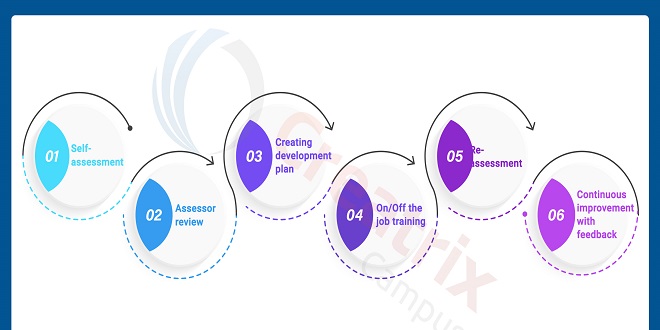Essential Skills Inventory Assessor’s Guide

Introduction
The Essential Skills Inventories were developed during a three-year Trade Essentials project whose mandate was to develop Essential Skills assessments and curricula for 13 trades. These materials provide an opportunity for tradespeople to identify and update the Essential Skills required for their respective trades as an important step towards successful trade certification. The Essential Skills Inventory is a tool used to identify both strengths and weaknesses in trade-specific Essential Skills profiles.
Interactive Assessment
Adult learners have different needs than “traditional” students so strategies must be developed to engage, motivate and build their confidence.
The Essential Skills Inventories use an innovative, interactive (dynamic) approach to assessment that is both client-centered and asset-based. An asset-based approach compares the apprentices’ present Essential Skills to the skills needed for their trade, connecting what they already know with what they need to learn.
Adult Education
At present, there is neither a process nor a place for those who are already working in a trade to update their trade-related Essential Skills other than completing Block training. Awareness of the trade-specific Essential Skills and the knowledge of the scope of a trade is a starting point on the path to certification. Individual assessments (inventories) followed by appropriate interventions (supports) provide the opportunity for eventual certification in the trade. The objective of this process is to help apprentices be successful in passing certification exams whether they be Block or Interprovincial Red Seal exams.
Adults will learn only what they believe they need to learn.
They have a practical approach to learning as they need to know how this learning affects them now.
Adults may have insufficient confidence
A number of apprentices may have had prior experiences within the education system that have led to feelings of inadequacy, fear of study and failure. Many apprentices have been out of a formal learning situation for 20 years or more. Returning to a classroom environment can be daunting and challenging.
Adults are often tired when they come to class as they are juggling work, family and other responsibilities. Most apprentices are working full time and are attending a program in the evenings and on occasional Saturdays. Many drive considerable distances, as well as driving in winter conditions.
The Essential Skills Inventory
Conducted in a manner that engages the apprentice and helps build confidence, the completed Inventory provides a picture of the apprentice’s learning needs while recognizing the skills that have already been acquired. The Inventory is as much a process as a product. The time required to complete an Inventory will vary depending on the apprentice but should be completed in one and a half to two hours. Six of the nine Essential Skills are assessed in these Inventories and are in this order: reading text (technical language), document use, numeracy, oral communication, computer use and writing. The Inventory is divided into sections and the section questions are ordered from simple to complex.
Essential Skills Profiles
The concept of Essential Skills and Essential Skills Profiles will likely be new to the apprentice. At the beginning of the interview, therefore, introduce the trade-specific Essential Skills Profile. Give the apprentice a hard copy of the profile to take away with him/her. Encourage a thorough review of the profile as well as the Essential Skills website




